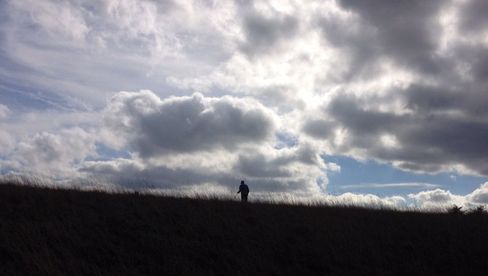|
Renowned journalist and commentator Thomas Friedman published “Thank You for Being Late: An Optimist’s Guide to Thriving in the Age of Accelerations” last year. After reviewing the accelerating environmental damages, stresses, and desperate condition of the Earth (“Mother Nature,” in his terminology) and its ecological systems and climate, Friedman quotes oceanographer Sylvia Earle’s succinct summation: “What we do right now, or fail to do, will determine the future—not just for us, but for all life on Earth.” Friedman’s own conclusion, upon reviewing our current state of phenomenal, unparalleled accelerations in technological, socio-economic, and environmental changes, is that, with our insults to the natural environment and human population TRIPLING in size in only 60 years (and with, currently, 1 of every 122 people on Earth a displaced refugee), we are on the verge of irreversible alteration of the Earth’s ecological balances and are at risk of wrecking our global climate, biodiversity, oceans, and ecosystem stabilizers and boundaries. "Without compounding, multiplicative commitments along all fronts that are commensurate with the magnitude of the challenge we face, we stand NO chance –zero--of preserving a stable planet when there will be so many more people, armed with so many more powerful tools, propelled by a supernova [that of electronic and digital technologies; and the internet information cloud] … I will keep saying … as long as I have the breath: we are the first generation for whom ‘later’ will be the time when all of Mother Nature’s buffers, spare tires, tricks of the trade, and tools for adapting and bouncing back will be exhausted or breached. If we don’t act quickly together to mitigate these trends, we will be the first generation of humans for whom later will be too late.”
Friedman directs us to use Mother Nature as a mentor for societal and political adaptation and resilience, and to embrace diversity and change. With hopeful optimism he suggests we can learn from and employ experiences from local communities, such as his home town in Minnesota, that have overcome challenges effectively and have embraced and grown from social, ethnic, and economic diversity. There is no better time than now to pause, find your community and place in which to join with others, and get to work. --Chuck Roe, President, Southern Conservation Partners
0 Comments
Leave a Reply. |
When we see land as a community to which we belong, we may begin to use it with love and respect.... Conservation, viewed in its entirety, is the slow and laborious unfolding of a new relationship between people and land." There is in fact no distinction between the fate of the land and the fate of the people. When one is abused, the other suffers. From the PresidentSCP President Chuck Roe looked at land conservation along the route of John Muir's "Southern Trek." About ViewpointThis blog offers views of our Board and partners. We invite your viewpoint on the following questions: Archives
April 2024
Categories
All
|


 RSS Feed
RSS Feed